Protecting Celebrity Identity
In today’s time, wherein the Indian film industry is continuing to flourish, celebrities face increasing risks of unauthorized copying and commercial exploitation of their images and talents. To protect their interests, it is imperative to utilize Intellectual Property Rights (IPR) as a safeguard against such infringements and ensure a secure future for these artists.
Rajinikanth’s name, Amitabh Bachchan’s baritone, and now Anil Kapoor’s style – these iconic attributes are not just elements of fame; they are integral to a celebrity’s identity. In recent years, Indian celebrities have been increasingly concerned about safeguarding their personality rights, which encompass their name, voice, signature, images, and other distinctive features easily recognized by the public.
The Anatomy of Personality Rights

Personality rights, often referred to as the right of publicity, encompass various facets of a celebrity’s persona. These include their name, voice, signature, images, and any other unique attributes that are closely associated with them. It extends to subtle elements of their personality, such as a distinctive pose or mannerism, which can become a part of their brand. The concept of personality and image rights has its origins in common law and classical natural law, which recognized inalienable human rights, including various laws related to an individual’s personality. Therefore, personality and image rights pertain to an individual’s right, often more relevant to public figures and celebrities, to control the use and commercial exploitation of their identity. This identity includes aspects such as their voice, signature, likeness, appearance, silhouette, features, face, expression, gestures, mannerisms, and distinctive character. To protect these rights, some celebrities even register specific aspects as trademarks, allowing them to utilize these distinctive features for commercial purposes.
The core principle underlying personality rights is exclusivity. Only the owner or creator of these distinct features has the right to derive commercial benefits from them. Unauthorized use of these attributes by third parties can result in significant financial losses for celebrities.
While the Constitution of India does not explicitly mention personality rights, in the case of Judge K.S. Puttaswamy v. Union of India, AIR 2017 SC 4161, privacy was recognized as a fundamental right under Article 21. Privacy, often described as the “right to be undisturbed,” is an extension of personal liberty. Using someone else’s identity without their consent is viewed as a breach of both their personality rights and their fundamental right to privacy. While the Delhi High Court and the Madras High Court have issued interim orders in favour of protecting personality rights, the legal framework in India is still in its nascent stage. Many concepts from intellectual property law, such as the prevention of passing off and deception, can be applied to determine whether a celebrity merits protection through an injunction.
Anil Kapoor’s Legal Showdown

A recent case involving Bollywood actor Anil Kapoor shed light on the legal intricacies of personality rights in India. Kapoor filed a civil suit in the Delhi High Court seeking protection of his personality rights, including his name, photographs, manner of speaking, and gestures. Additionally, he claimed protection for his copyright in dialogue and associated works.
Kapoor’s lawyer, Pravin Anand, an intellectual property rights specialist, argued that several defendants had unlawfully profited from Kapoor’s name and persona. For instance, the trademarked dialogue “Jhakaas” associated with Kapoor was being used by third parties for commercial gain. Anand distinguished between unauthorized use and “fair use,” asserting that while fair use might apply in non-commercial, educational, or artistic contexts, profiting from a celebrity’s persona without permission constitutes unauthorized use.
A single-judge bench led by Justice Prathiba Singh issued an interim order highlighting the complex dynamics of fame in today’s digital age, particularly in the context of Indian actor Anil Kapoor’s personality rights case. This case underscores how fame, while often considered a privilege, can also bring its own set of challenges and potential harm. Justice Singh emphasized that Kapoor’s situation exemplifies how reputation and celebrity status can sometimes lead to damage and misuse of one’s image and persona. Kapoor’s lawyer, Pravin Anand, made an interesting point that it’s not just the word “jhakaas” (a catchphrase associated with Kapoor) itself but also the unique manner in which he delivers it, such as with a twisted lip, that is at the core of what the court seeks to protect. This distinction highlights the importance of safeguarding not just the words but the distinctive characteristics and expressions that make a celebrity’s persona unique.
The court recognized the increasing threat posed by technological tools, including Artificial Intelligence, which enable unauthorized users to exploit celebrities’ persona for various purposes. Furthermore, the court acknowledged that celebrities have a right to privacy and should not have their images, voices, or likenesses portrayed in a negative or dark manner, as is sometimes seen on inappropriate websites.
Justice Singh clarified that while free speech, parody, satire, and genuine criticism about well-known individuals are protected forms of expression, these protections have limits. When such expression crosses the line and tarnishes or jeopardizes an individual’s personality and associated elements, it becomes illegal. Specifically, using a person’s name, voice, dialogue, or image illegally and for commercial purposes cannot be permitted, as it can impact a celebrity’s livelihood. The court cited the landmark Auto Shankar case, where the Supreme Court of India had condemned the misuse of a celebrity’s name, voice, persona, and likeness.

The court noted that Kapoor’s image being morphed alongside other actresses is not only offensive to him but also to third-party celebrities and actresses. Therefore, the court cannot turn a blind eye to such misuse of a personality’s name and elements. Dilution and tarnishment of a celebrity’s image are actionable torts, and Kapoor deserves protection against such misuse not only for his sake but also for the well-being of his family and friends.
In addition to Kapoor’s case, the court also considered documents submitted by his counsel that depicted images of other famous personalities being used in offensive ways. One such example was an image of Mahatma Gandhi with a gun, which the court found potentially satirical but offensive to society at large.
Consequently, the court issued an interim injunction, restraining defendants from using Anil Kapoor’s name, likeness, image, voice, or any aspect of his persona to create merchandise, ringtones, or any other form of misuse for monetary gain or otherwise. The court also ordered the immediate takedown of links to videos that were part of the case. These actions were taken to prevent further harm and misuse of Kapoor’s personality rights.
The Delhi High Court issued an ex-parte, omnibus injunction in Kapoor’s favour, restraining 16 entities from using his name, likeness, image, and employing technological tools like Artificial Intelligence, face morphing, and GIFs for monetary gain or commercial purposes. An ex-parte injunction is one granted without hearing the other party’s side, and an omnibus injunction covers any unauthorized use, even if not explicitly mentioned in the initial complaint.
The injunction serves as a deterrent, but enforcing it remains challenging for celebrities. To combat unauthorized use, celebrities must issue takedown orders to online intermediaries like Google to remove infringing content. While these legal processes entail significant costs, they are often deemed worthwhile compared to the revenue losses incurred through unauthorized exploitation.
This case sheds light on the evolving legal landscape surrounding personality rights and the protection of celebrities’ identities in the digital age. It underscores the need for a delicate balance between free speech and the safeguarding of an individual’s persona in an era where technology allows for unprecedented exploitation of celebrity images and voices. The court’s decision reflects a commitment to upholding the rights and dignity of public figures like Anil Kapoor and serves as a precedent for future cases involving similar issues.
When Fame Meets the Law
The Anil Kapoor case however is not an isolated incident. Indian courts have previously tackled similar issues related to the misuse of personality rights. In November 2022, the Delhi High Court addressed a case involving legendary actor Amitabh Bachchan. The court issued an injunction against the use of variations of Bachchan’s name, such as “Big B,” and his unique style of addressing computers as “Computer ji” and “lock kiya jaye.” The court relied on a 2012 order involving Bachchan when Titan Industries, a Tata company that owns the Tanishq jewelry brand, sought protection against a Muzaffarnagar-based jewelry store using Bachchan’s images from a Tanishq advertisement. In a 2015 case involving actor Rajinikanth, the Madras High Court emphasized that personality rights belong to individuals who have achieved celebrity status. The court’s observation came during Rajinikanth’s lawsuit against the producers of the movie “Main Hoon Rajnikanth,” alleging that his name, image, and style of delivering dialogues had infringed his personality rights. The court stated that the title of the movie was so closely associated with the actor that the public could only identify it with him, making it clear that Rajinikanth was not a common name.
When Can Court Grant an Injunction?

Indian courts have outlined specific criteria for granting injunctions to protect personality rights:
1. Validity of the Right: The court must determine whether the plaintiff owns an enforceable right in the identity or persona of the celebrity.
2. Identifiability: The celebrity must be easily identifiable in the alleged misuse. If the celebrity is well-known, a simple “unaided identification” should suffice. Otherwise, the plaintiff must present evidence of multiple elements in the context of the defendant’s use that collectively point to the plaintiff’s identity.
3. Defendant’s Intent: Evidence of the defendant’s intent to profit from the celebrity’s identity is crucial. Such intent can establish identifiability.
Celebrity Personality Rights Around the World
United States:
In the United States, there is no specific federal statute addressing personality rights. However, the Unfair Competition Law offers some protection against false endorsements and associations. The concept of personality rights in the U.S. gained recognition in the 1953 case of Haelan Labs., Inc. v. Topps Chewing Gum, Inc., where the court acknowledged an individual’s right to control the publicity value of their photograph, even without transferring any business rights. This right has been referred to as the “right of publicity.”
United Kingdom:
The United Kingdom lacks a dedicated statute solely focused on personality rights. However, both statutory and common law provisions offer protection against the unauthorized use of celebrity image rights. The action of passing-off under Torts Law comes into play when a personality’s image is used for trade and generates goodwill. Legislation such as the Trademarks Act, 1994, and the Data Protection Act, 1998, also safeguard publicity rights. In Irvine v Talksport24, the Court of Appeal upheld a passing-off action for false endorsement, emphasizing the importance of protecting a celebrity’s image. The Data Protection Act prevents the misuse of personal information, including images and videos, which may infringe on personal rights.
Additionally, the European Convention on Human Rights (ECHR) protects the right to private life under Article 8, and Article 10 guarantees the right to freedom of expression. Balancing these rights is essential in cases involving personality rights in the UK.
Canada:
In Canada, both tort law and statutory laws address personality rights, and specific provinces, like Manitoba, Newfoundland, and Saskatchewan, have enacted statutory protections. In Joseph vs Daniels, the court established the criterion of “identifiability,” requiring the personality’s image to be recognizable by the public at large. In Gould Estate v Stoddart Publishing Co, the court acknowledged that Canada lacks a constitutional provision similar to the U.S. First Amendment but argued that freedom of expression should inform Canadian courts’ decisions regarding the limits of appropriation of personality. Canada recognizes the right to personality as a celebrity right, with legislation directly addressing the issue.
Hence, Personality rights have become crucial for celebrities, impacting their careers and income. Recent cases, like Anil Kapoor’s, illustrate how legal protection can be sought when these rights are exploited for commercial gain. As Indian law evolves in this area, celebrities and their legal teams will likely play a more significant role in safeguarding these assets. Globally, different legal frameworks exist to protect personality rights, with some nations having dedicated statutes while others rely on tort law, intellectual property, and privacy legislation. These provisions strike a balance between image protection and freedom of expression, ensuring individuals, especially celebrities, maintain control over their identity.


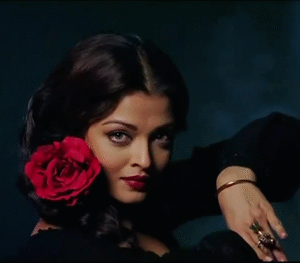
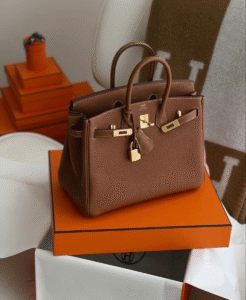
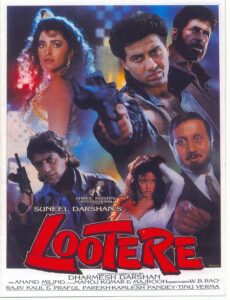
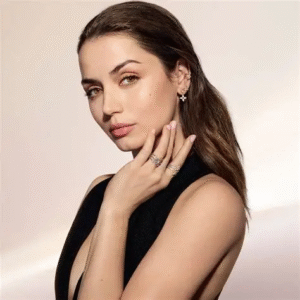

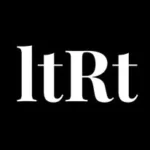
![Demna woke up and chose violence!!!
Gucci Milan Fashion Week Fall 2026, Demna’s debut Runway ✨🙇🏻♀️💋
[Demna, Gucci, Milan Fashion Week, Runway, Fashion, Italy, Let The Raven Talk]](https://lettheraventalk.com/wp-content/plugins/instagram-feed/img/placeholder.png)
